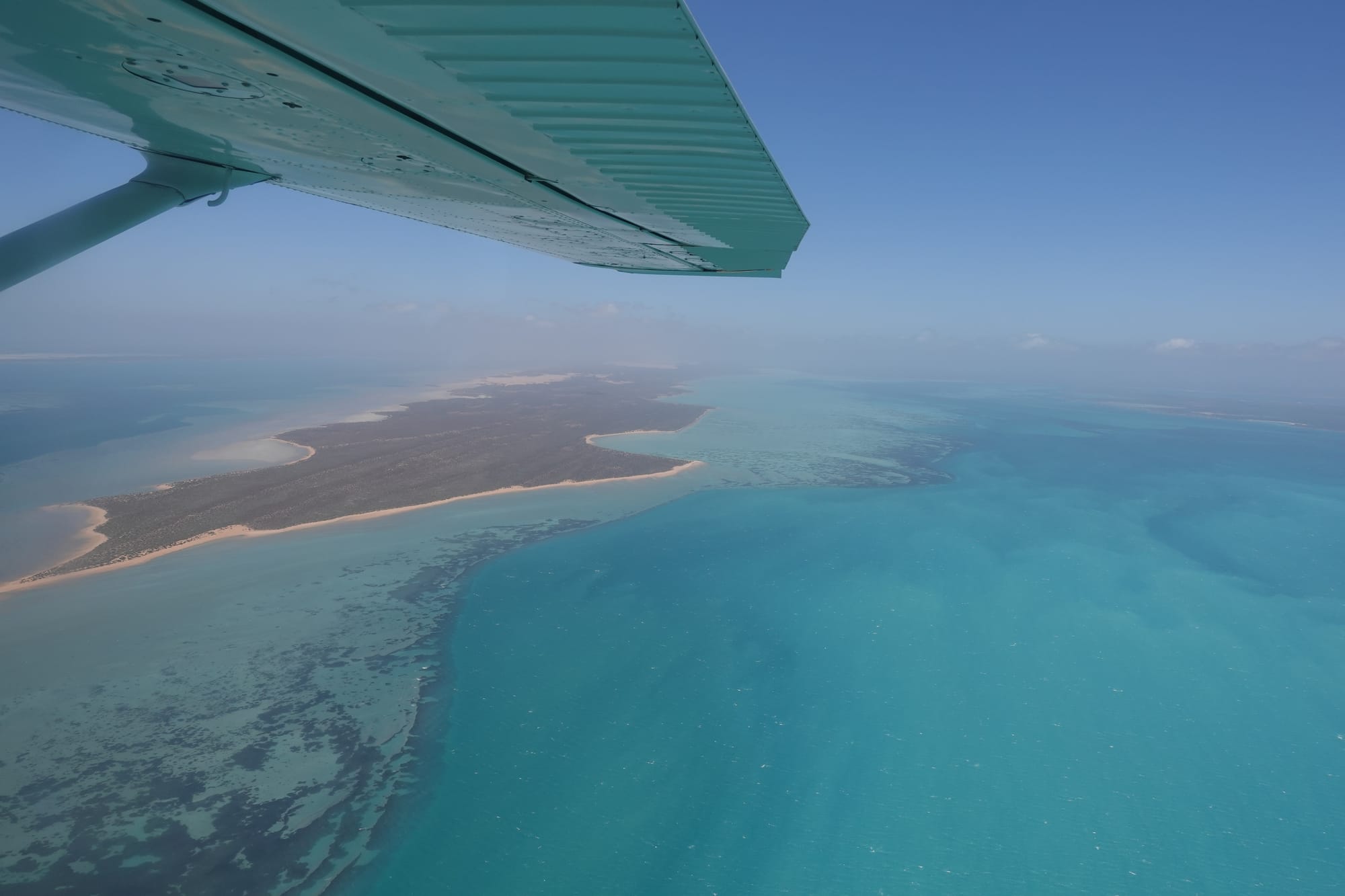Marine Heatwave Drives Long-Term Fragmentation of Shark Bay Seagrass Meadows
A new study, part of Mike Taylor’s PhD thesis and in collaboration with DBCA, shows the 2010/11 marine heatwave in Shark Bay led to continued long-term fragmentation of its vast seagrass meadows. The work reveals lasting ecological impacts and introduces a novel monitoring framework.

A new study led by SequeiraLab's just finished-PhD student Michael Taylor, in collaboration with colleagues at the Department of Biodiversity, Conservation and Attractions and The University of Western Australia, has revealed that a marine heatwave caused extensive habitat fragmentation in one of the world’s largest and most important seagrass ecosystems. Published in Remote Sensing in Ecology and Conservation, the research highlights the long-lasting impacts of extreme climate events on marine ecosystems and introduces a new framework for assessing habitat degradation and recovery.
This paper, which was part of the Gathaagudu Animal Tracking (GAT) Project led by Ana Sequeira, used satellite-derived habitat maps, from where the team quantified seagrass fragmentation across the UNESCO World Heritage site of Shark Bay, Western Australia. They found that the unprecedented heatwave in the austral summer of 2010/11 has transformed the once-continuous, vast seagrass meadows into smaller, more isolated patches, with 75% of the remaining Shark Bay’s seagrass areas showing signs of fragmentation. Such fragmentation compounds the effects of habitat loss by disrupting ecological functions like carbon sequestration and nutrient cycling, reducing habitat connectivity, and threatening seagrass-dependent species such as sea snakes and dugongs.
Though some evidence of seagrass recovery is promising, most seagrass meadows in Shark Bay remain highly fragmented, making them more vulnerable to other disturbances and future heatwaves. With marine heatwaves becoming increasingly common worldwide, this study underscores the importance of monitoring habitat fragmentation alongside habitat loss when assessing the impact of such extreme events on vulnerable ecosystems. The habitat loss/gain framework developed by this research provides a scalable tool for identifying both vulnerable and resilient areas, helping to guide management and restoration efforts across diverse marine environments.
Congratulations to Michael on the publication of this important work as part of his PhD thesis.
